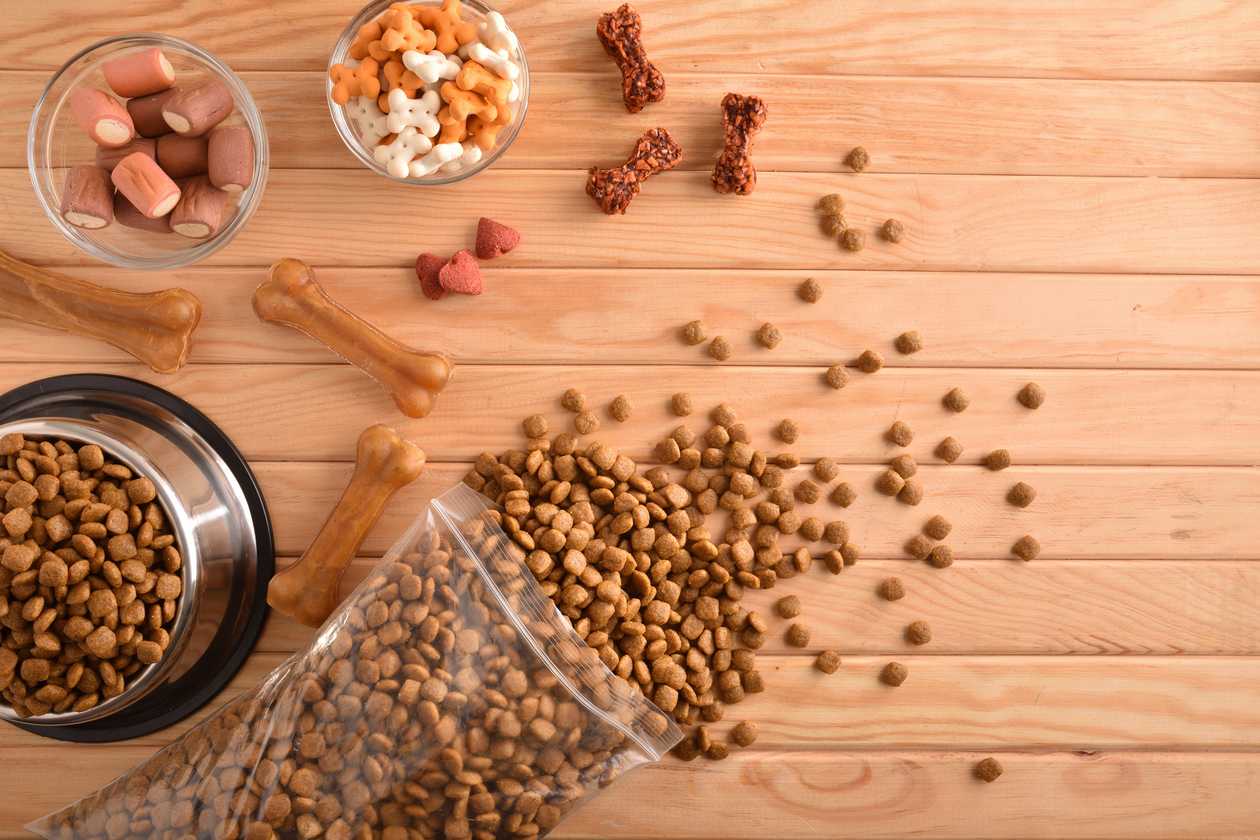As dog owners, we all want the best for our furry friends. A balanced and nutritious diet is essential, and one of these key components is protein. This article will delve into canine nutrition, exploring how much protein is in dog food and why it matters.
Introduction
Importance of Protein in Dog Food
Protein is the cornerstone of a dog’s diet, playing a vital role in various bodily functions. From muscle development to immune system support, the right amount of protein is crucial for your dog’s overall well-being.
The Role of Protein in a Dog’s Diet
Beyond mere sustenance, protein contributes to a shiny coat, strong nails, and energy levels. Understanding the significance of protein sets the stage for making informed choices about your dog’s diet.
Understanding Dog Protein Needs
Factors Influencing Protein Requirements
Not all dogs are the same; factors like age, breed, and activity level influence their protein needs. Tailoring the protein content of their diet to these factors ensures optimal health and vitality.
Different Protein Sources in Dog Food
Dog foods come in various formulations, incorporating proteins from both animal and plant sources. Knowing the difference helps you make choices that align with your dog’s nutritional requirements.
Determining the Right Amount
Guidelines for Protein Intake Based on Age and Size
Puppies, adult dogs, and seniors have different protein requirements. Understanding these guidelines ensures you provide the right amount at each life stage.
Risks of Excessive Protein in Dog Food
While protein is essential, excessive amounts can pose health risks. We’ll explore the potential downsides and how to strike the right balance for your furry companion.
Types of Proteins in Dog Food
Animal-Based Proteins
Meat, poultry, and fish are familiar animal-based protein sources. We’ll break down the nutritional profiles of these sources and their benefits.
Plant-Based Proteins
For dogs with dietary restrictions or preferences, plant-based proteins offer viable alternatives. We’ll explore which plants provide complete proteins and how to incorporate them into your dog’s diet.
Balanced Protein Combinations
Achieving a well-rounded diet often involves a mix of animal and plant-based proteins. We’ll discuss the concept of balanced protein combinations and how they contribute to overall canine health.
Reading Dog Food Labels
Deciphering Protein Content on Labels
Understanding how to read and interpret dog food labels empowers you to make informed choices. We’ll guide you through the maze of information, focusing on the critical details related to protein content.
Identifying High-Quality Protein Sources
Not all proteins are created equal. Learn to distinguish high-quality protein sources, ensuring your dog receives the best nutrition from their food.
Special Dietary Considerations
Protein Needs for Specific Breeds
Different breeds may have specific protein requirements. We’ll explore these variations and provide insights into tailoring diets to suit individual species.
Protein and Health Issues in Dogs
Certain health conditions may influence protein needs. We’ll show you how to navigate these situations and meet your dog’s nutritional requirements.
Homemade Dog Food and Protein
Pros and Cons of Homemade Dog Food
Some pet owners prefer preparing meals at home. We’ll discuss the advantages and potential pitfalls, focusing on maintaining adequate protein levels in DIY dog food.
Ensuring Adequate Protein in DIY Meals
If you opt for homemade meals, we’ll provide tips on ensuring they meet your dog’s protein needs and overall nutritional requirements.
Popular Dog Food Brands and Their Protein Content
Analyzing Protein Content in Leading Brands
Explore the protein content of popular dog food brands, understanding how they stack against each other regarding nutritional value.
Consumer Considerations for Protein-Rich Options
For those navigating the aisles of pet stores, we’ll offer guidance on choosing protein-rich options that align with your dog’s preferences and dietary requirements.
The Connection Between Protein and Dog Health
Impact of Protein on Coat and Skin Health
A shiny coat and healthy skin are indicators of a well-balanced diet. We’ll delve into how protein contributes to these aspects of your dog’s appearance.
Protein’s Role in Muscle Development and Maintenance
Muscle development is crucial for active dogs or those in their formative years. Discover how protein supports muscle health and vitality.
Common Myths About Dog Protein Requirements
Debunking Misconceptions About High Protein Diets
Separating fact from fiction, we’ll address common myths surrounding high-protein diets and their potential impact on dogs.
Addressing Concerns About Protein Allergies
Some dogs may be sensitive to specific proteins. We’ll discuss identifying and addressing potential protein allergies in your furry friend.
Recommendations from Veterinarians
Professional Insights on Dog Protein Needs
Veterinarians play a crucial role in guiding pet owners. We’ll share expert recommendations on meeting your dog’s protein needs and maintaining their overall health.
Tailoring Protein Intake for Individual Dogs
Every dog is unique. We’ll explore how to tailor protein intake based on your dog’s characteristics, ensuring a personalized approach to nutrition.
Homemade Dog Treats and Protein Snacks
Incorporating Protein into Dog Treats
Treats can be both delicious and nutritious. Discover creative ways to include protein in homemade dog treats, keeping your pup excited and healthy.
Ensuring Nutritional Balance in Snacks
While indulging your dog with treats, it’s crucial to maintain a nutritional balance. We’ll provide tips on crafting snacks that complement your dog’s diet.
Trends in the Dog Food Industry
Protein Trends in Commercial Dog Food
Stay updated on the latest trends in commercial dog food, focusing on protein formulations and their impact on the market.
Emerging Innovations in Canine Nutrition
From novel protein sources to advanced processing techniques, explore the innovations shaping the future of canine nutrition.
Customer Reviews and Experiences
User Testimonials on Protein-Rich Diets
Real-life experiences offer valuable insights. We’ll present user testimonials highlighting the impact of protein-rich diets on dogs’ health and well-being.
Real-World Feedback on Different Brands
Considering switching your dog’s food? We’ll share real-world feedback on various brands, helping you make an informed decision.
Conclusion
Recap of Key Points
In conclusion, understanding how much protein is in dog food empowers you to make informed choices for your canine companion. Balancing their nutritional needs ensures a happy and healthy life.
Encouragement for Responsible Pet Nutrition
As a responsible pet owner, your choices matter. By prioritizing your dog’s protein needs, you contribute to their overall well-being. Remember, a well-fed dog is a happy dog.
FAQs
- Q: Can I feed my dog too much protein?
A: Yes, excessive protein can lead to health issues. Follow guidelines based on your dog’s age and size. - Q: Are plant-based proteins suitable for all dogs?
A: While some dogs thrive on plant-based diets, others may require animal-based proteins. Consult your vet for personalized advice. - Q: How do I identify protein allergies in my dog?
A: Watch for signs like itching, gastrointestinal upset, or changes in behavior. Consult your vet for a proper diagnosis. - Q: Is homemade dog food a better option for protein intake?
A: It can be, but it requires careful planning to ensure all nutritional needs, including protein, are met. - Q: What’s the ideal protein content in dog food?
A: The ideal content varies by factors like age and activity level. Consult your vet to determine the right balance for your dog.







